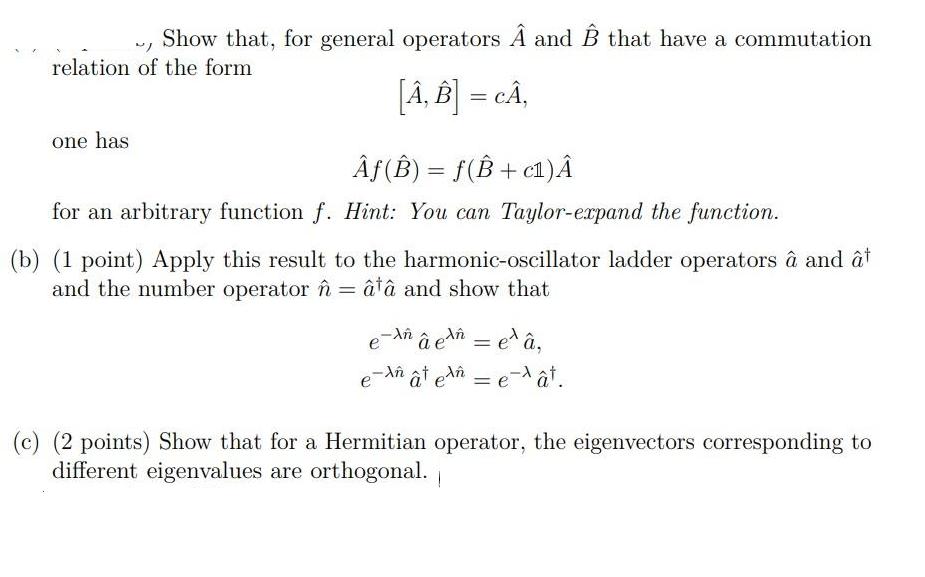Question
Show that, for general operators A and B that have a commutation |, B| = C, / relation of the form one has (B)

Show that, for general operators A and B that have a commutation |, B| = C, "/ relation of the form one has (B) = f(B+c1) for an arbitrary function f. Hint: You can Taylor-expand the function. (b) (1 point) Apply this result to the harmonic-oscillator ladder operators and at and the number operator = and show that e = e, e-n at en e-^t. e -Xn = (c) (2 points) Show that for a Hermitian operator, the eigenvectors corresponding to different eigenvalues are orthogonal. 1
Step by Step Solution
3.46 Rating (153 Votes )
There are 3 Steps involved in it
Step: 1
a To show that ffc1 for an arbitrary function f we can use the commutation relation c and the Taylor expansion of fc1 Using the commutation relation w...
Get Instant Access to Expert-Tailored Solutions
See step-by-step solutions with expert insights and AI powered tools for academic success
Step: 2

Step: 3

Ace Your Homework with AI
Get the answers you need in no time with our AI-driven, step-by-step assistance
Get StartedRecommended Textbook for
Income Tax Fundamentals 2013
Authors: Gerald E. Whittenburg, Martha Altus Buller, Steven L Gill
31st Edition
1111972516, 978-1285586618, 1285586611, 978-1285613109, 978-1111972516
Students also viewed these Mathematics questions
Question
Answered: 1 week ago
Question
Answered: 1 week ago
Question
Answered: 1 week ago
Question
Answered: 1 week ago
Question
Answered: 1 week ago
Question
Answered: 1 week ago
Question
Answered: 1 week ago
Question
Answered: 1 week ago
Question
Answered: 1 week ago
Question
Answered: 1 week ago
Question
Answered: 1 week ago
Question
Answered: 1 week ago
Question
Answered: 1 week ago
Question
Answered: 1 week ago
Question
Answered: 1 week ago
Question
Answered: 1 week ago
Question
Answered: 1 week ago
Question
Answered: 1 week ago
Question
Answered: 1 week ago
Question
Answered: 1 week ago
Question
Answered: 1 week ago
View Answer in SolutionInn App



